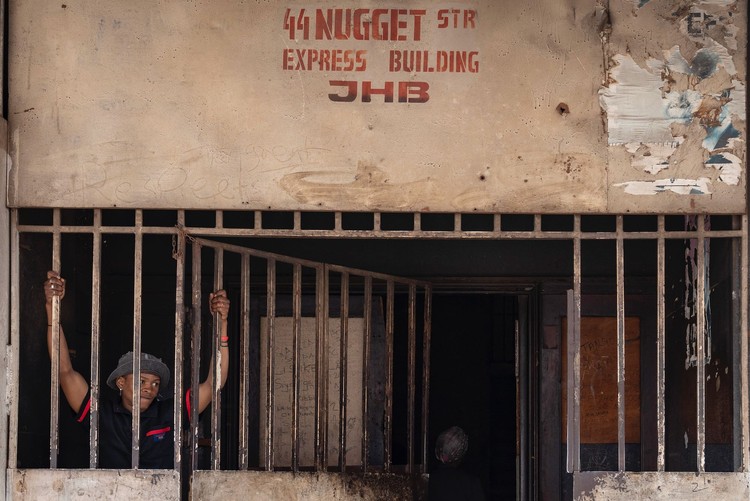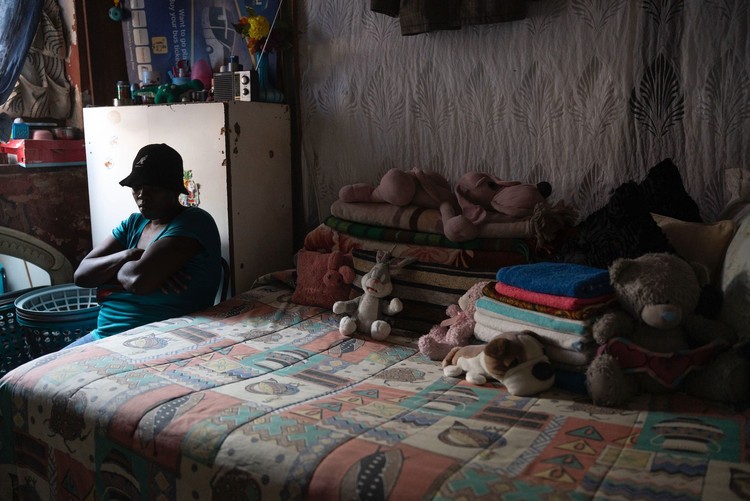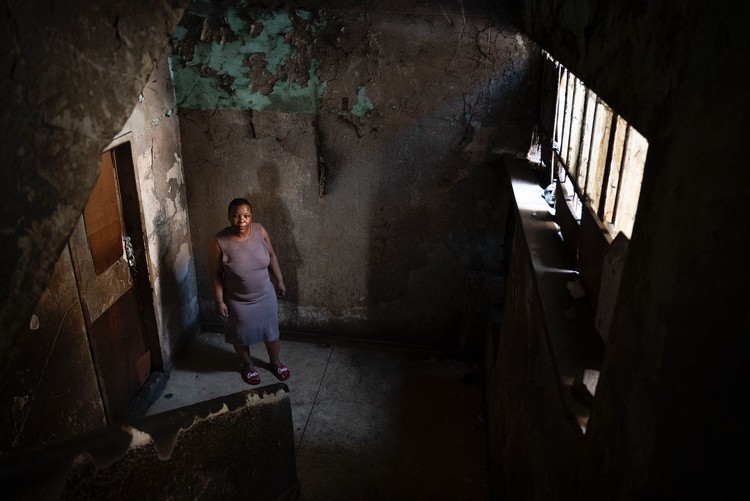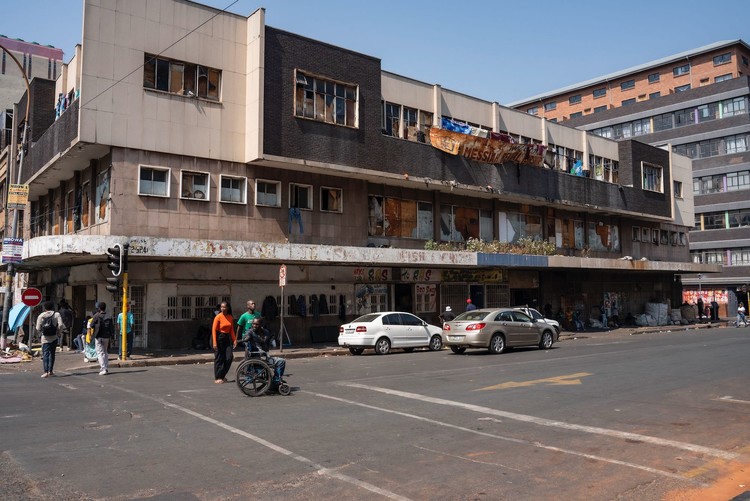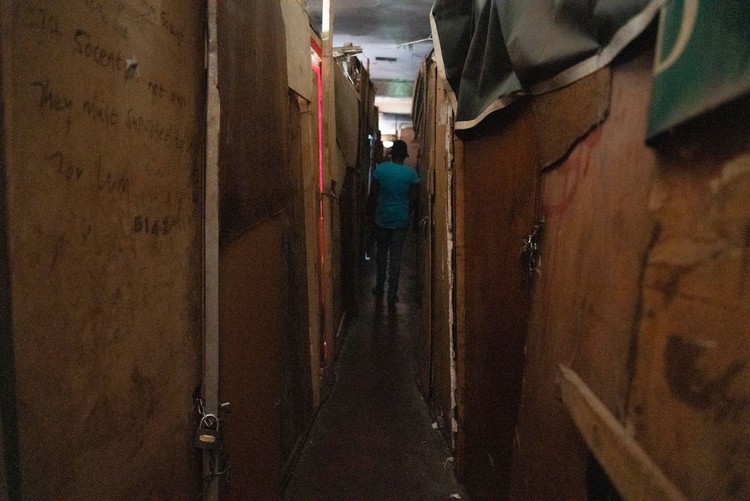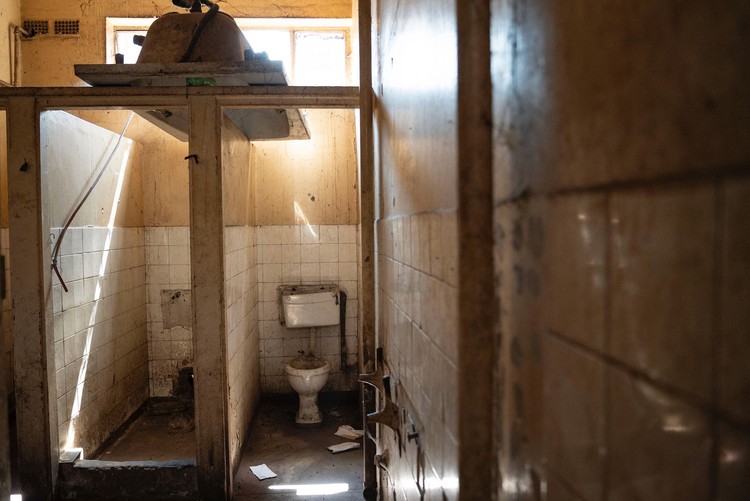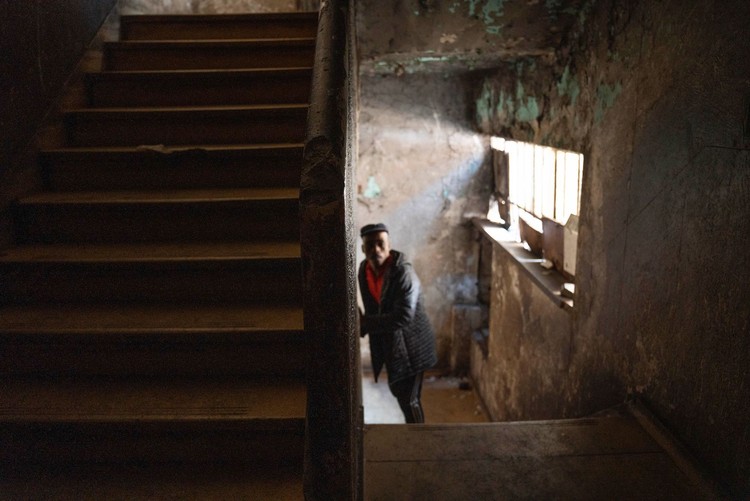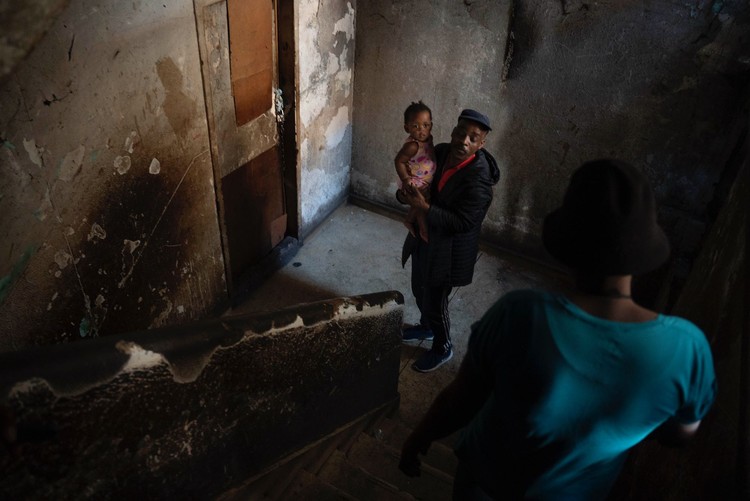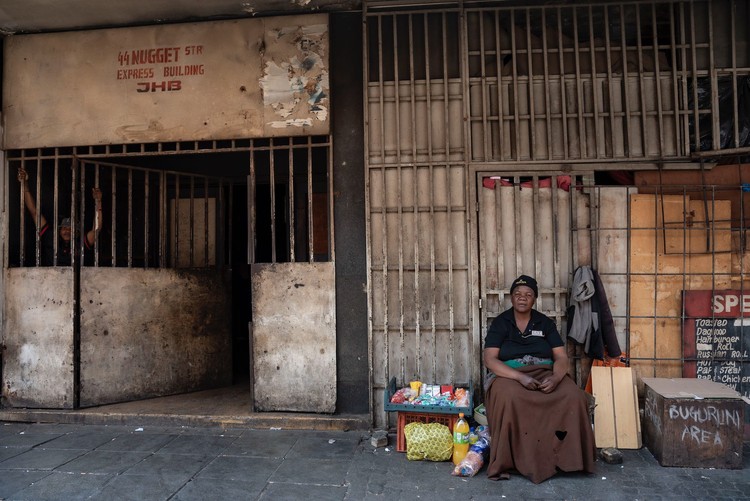300 occupants share one tap and one toilet in Joburg “dark building”
The building’s residents say they need help not eviction
The entrance to the Nugget Street Express Building in Johannesburg’s city centre.
Entering the three-storey Express Building at 44 Nugget Street in downtown Johannesburg, one is greeted by piles of rubbish and stagnant water. The walls are grimy; the passageways dark. Every window is broken and residents use cardboard, clothes and old blankets to cover the openings. Zinc sheets are used as doors and curtains and boards to create separated spaces. The building has no electricity. People use candles.
For water, there is only one tap on the ground floor, illegally connected. There is one toilet, flushed with a bucket.
Most occupants of the Express Building survive as waste collectors.
The building was once a private college, and at some point a church before it was occupied in 2008. According to residents, when they entered they found school textbooks and desks.
According to court papers, the building was bought in 2011 by Tony Emmanuel Meme-Akpta and his wife, who were resident in Nigeria.
In 2019 Meme-Akpta went to court to evict the occupants, but the application was dismissed for being grossly unprocedural. Not only were the occupants not properly served, but the municipality was ignored. There was also no explanation as to why the landlord waited eight years to take action. Many of the occupants had been in the building for over a decade.
Nqobile Zulu inside her tiny room.
Nqobile Zulu, originally from Pietermaritzburg in KwaZulu Natal, has lived in the Express Building since 2008. She stays in a tiny room, demarcated with cardboard, planks and curtains. She shares this space with her two daughters, eight and 16 years old, and her partner. The couple are unemployed and survive on piecemeal jobs.
She has a bed, a small wardrobe, a little table for their primus stove and a small mirror hanging on the wall.
“We have stayed here since 2008,” says Zulu. “We joined people who had hijacked the building.”
(Although Zulu and other residents use the term “hijacked”, GroundUp refers to them as “occupiers”, as in residents who unlawfully moved into a building. We describe a building is “hijacked” when people who are not the owners take it over and extort rent from residents. By this definition, not all “dark” buildings in Johannesburg are hijacked. In fact this one isn’t. But all the dark buildings appear to have occupiers.)
“We had electricity initially but it was cut off,” she says.
“Life is hell inside this building. I believe there are over 300 of us staying here. People come and go. We don’t pay any rent and that is the convenience for us.”
She said there were two murders in the building last year. The building cannot be locked and people come and go.
The inferno at 80 Albert Street in which 77 people died has “shaken” the community, she says. “We don’t know what might happen one day. We have heard rumours that they will shut down these buildings. We are frightened as we don’t have anywhere to go,” says Zulu.
Khusitso Seepane, a resident of the Nugget Street Express Building, earns R3,000 a month and cannot afford rent in the city.
Khusitso Seepane, originally from Bushbuckridge in Mpumalanga, said she moved into the building in 2010. “At the beginning, there were only a few of us, but now the place is a mess. There are people who come and sell Nyaope [a drug] here and it has become chaotic.”
“I hope the government can at least assist us to get a decent place, where we can pay low and affordable rent. I work as a security guard, and earn around R3,000 a month. Sometimes the money is even paid late. I cannot afford to pay rent in the flats here,” says Seepane.
“We don’t like staying in this filth, but we are out of choices. Many people staying here are unemployed and survive as waste collectors.”
A view of the outside of the Nugget Street Express Building.
On Thursday, News24 reported that the City of Johannesburg is currently investigating 188 “hijacked” buildings.
Tiny “apartments” are created with partitioning plywood and other materials.
The one usable toilet in the Nugget Street Express Building.
The staircase is dimly lit. There is no electricity in the building.
Thembinkosi Ngubane, a resident of the Nugget Street Express Building.
Sikhathele Moyo sells sweets and cigarettes outside the building to make a living.
The article originally included a paragraph that we asked the City of Johannesburg questions but received no answers. Since publication we have received partial answers. At this point our view is that further information is required from the City before we publish their answers.
Support independent journalism
Donate using Payfast

Don't miss out on the latest news
We respect your privacy, and promise we won't spam you.
Next: Government responds to report on solitary confinement
Previous: Parliament grills NSFAS over student funding failures
© 2023 GroundUp. This article is licensed under a Creative Commons Attribution-NoDerivatives 4.0 International License.
You may republish this article, so long as you credit the authors and GroundUp, and do not change the text. Please include a link back to the original article.
We put an invisible pixel in the article so that we can count traffic to republishers. All analytics tools are solely on our servers. We do not give our logs to any third party. Logs are deleted after two weeks. We do not use any IP address identifying information except to count regional traffic. We are solely interested in counting hits, not tracking users. If you republish, please do not delete the invisible pixel.

